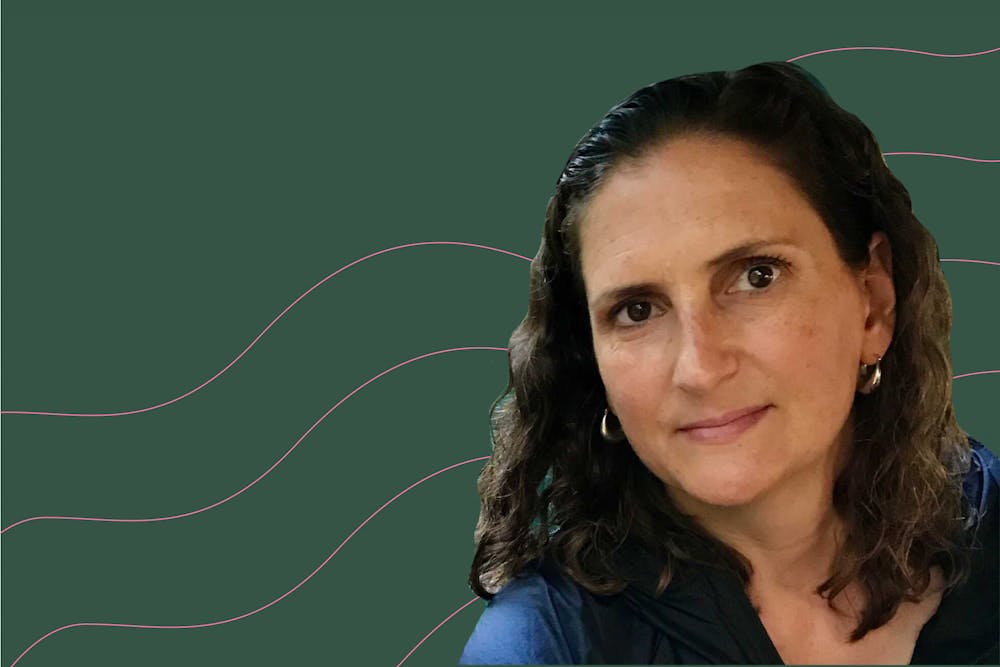“It is so important to understand positions that you don’t agree with. If you don’t understand them, you can’t argue against them. That’s something that I really emphasize in my classes...trying to see both sides of something and fleshing out the reasonable contours of all these different debates,” Professor of Sociology Chenoa Flippen reflects.
To Flippen, who has been teaching in the Sociology Department at Penn since 2008, one of the most interesting facets of the field is how social context shapes life chances and inequality. This is the area in which Flippen conducts most of her research, which she began during her years in graduate school at the University of Chicago.
Leaving Chicago, she moved to Durham, North Carolina to work as a research professor at Duke. Living in North Carolina during this time period fed directly into her research on immigrants in new destinations. “Durham is a part of the country where you just didn’t see any immigrants before 1980. It’s very interesting to understand how local context can shape how well different groups do over time,” she says.
One main area of Professor Flippen's research is immigrant incorporation, and tracking immigrants’ trajectories once they arrive in the United States. She studies this in relation to racial and ethnic inequality in labor market incorporation and outcome, homeownership, and wealth.
She recounts the ways in which the current political climate is very applicable to her research. “Every election cycle is so great at illustrating why we study demography and the composition of populations. Immigration is also an incredibly important issue right now," she says. "We’ve had a massive reduction in the number of immigrants coming into the U.S, which is going to have all kinds of implications for U.S. society. This is such a timely moment to be studying those things."
Flippen reflects that the majority of her research relates to the process of adaptation and immigration policy in terms of who and how many people are entering the country, where they're coming from, and how they fare once they arrive. In her eyes, the current anti-immigrant political climate is not a complete break from the past—rather, it is part of a continued ramping up of crimmigration.
"A lot of my work looks at the negative consequences of crimmigration for incorporation and just how detrimental it is for peoples' ability to earn a living, along with their employment stability. You see it in the undocumented, but also in other groups. This is a really important time to be understanding the impact of all of these sorts of policies," she explains.
This semester, Professor Flippen is teaching a course called "International Migration" and leading the Sociology Thesis Workshop for seniors, in addition to her position as the undergraduate chair of Sociology. Courses she also generally teaches at Penn include "Urban Sociology" and "Population and Society."
She describes how Population and Society is different from her other courses, as it’s the only class she teaches that draws a lot of non-Sociology majors. “In that class every semester I get so many students telling me that they’ve never thought about the things that I am teaching them before. A lot of the students are sort of used to hearing this free market, neoliberal ideology, and I really like being able to put it in a more critical frame,” Professor Flippen explains.
She says that teaching and research normally go hand-in-hand, as professors generally teach in their area of research. This allows them to stay up-to-date in their field of study and bring their enthusiasm for their main area of work to the classroom. However, the pandemic has made teaching much more challenging, just as it has learning. Flippen shares her concern for her students during this time and whether they’re getting as much as they can out of their learning.
“Being a professor is really the best job that I could ever imagine. Most professors were obviously pretty good at school, and I like to say that it’s basically like we never left school —except we get to research the things that we’re really interested in. So sure, I’d love to travel more, or climb Mount Everest, but I feel like I’m already doing what I really want to do.”







